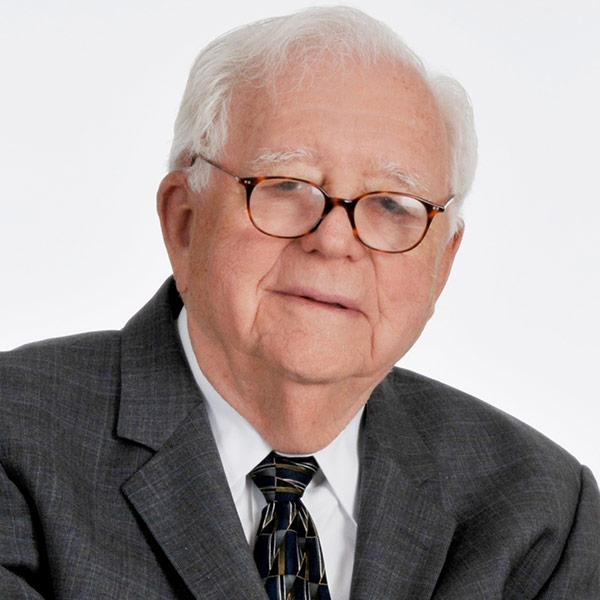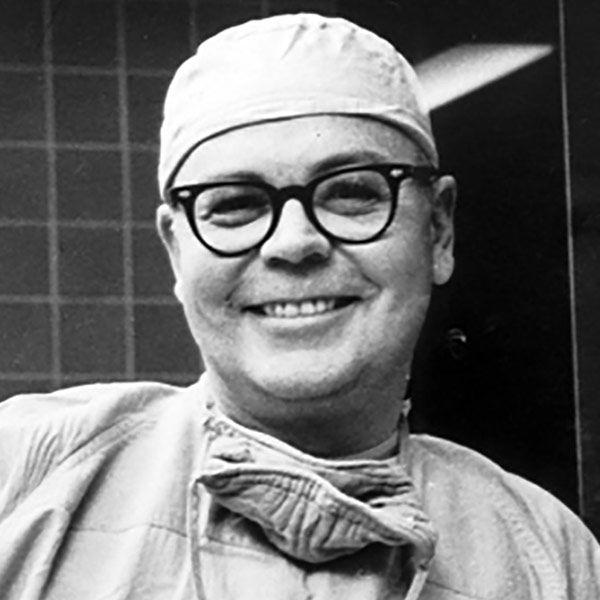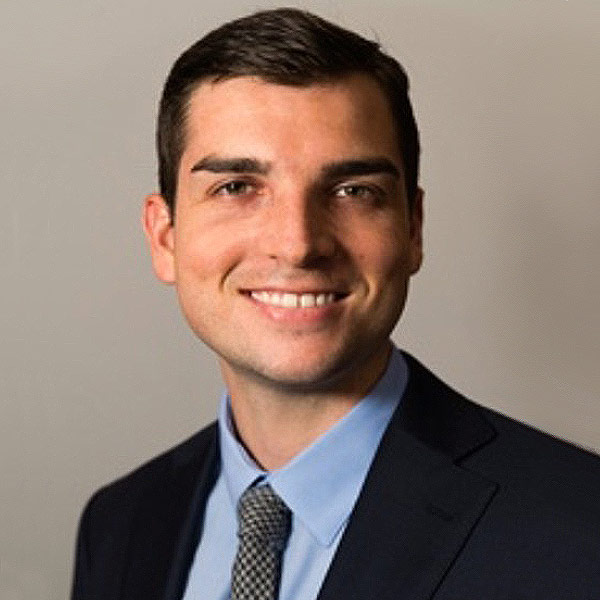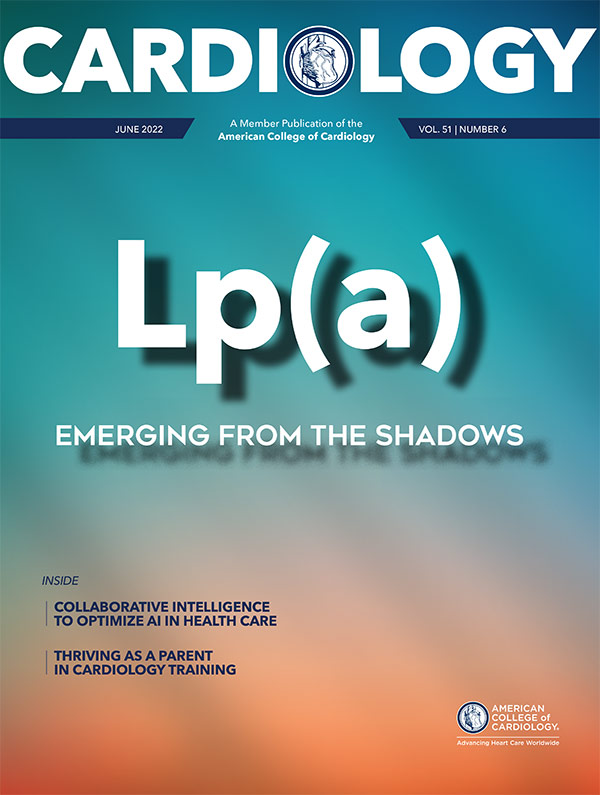From the Member Sections | An Interview With Eugene Braunwald, MD, MACC

Eugene Braunwald, MD, MACC, is the Distinguished Hersey Professor of Medicine at Harvard Medical School. He attended New York University (NYU) School of Medicine and completed his residency at Johns Hopkins Hospital. He served as chief of cardiology and clinical director of the National Heart, Lung, and Blood Institute (NHLBI), and was the founding chair of medicine at the University of California, San Diego. From 1972 to 1996, he served as chair of the Department of Medicine at Brigham and Women's Hospital in Boston, MA.
Braunwald established in 1984 the Thrombolysis in Myocardial Infarction (TIMI) Study Group, an academic research organization at Brigham and Women's Hospital. Over the past 38 years, he and his colleagues at the TIMI Study Group have made seminal advances in cardiovascular medicine, conducting more than 70 clinical trials.
With more than 1,000 peer-reviewed publications, he is the most frequently cited author in the field of cardiology, according to Science Watch. Braunwald also served as editor for 12 editions of Harrison's Principles of Internal Medicine and is the founding editor of Braunwald's Heart Disease, which is widely viewed as one of the premier texts in cardiology.
He has received countless honors and awards including the Distinguished Scientist and Lifetime Achievement Awards from the ACC; the Research Achievement and Herrick Awards from the American Heart Association; and the Gold Medal of the European Society of Cardiology.
Braunwald joined me for a conversation about his background and medical training, as well as advice on how to seek mentorship and navigate adversity, along with his views on the past, present and future of medicine and cardiology.
You came to the U.S. at a young age as an immigrant. How has your heritage informed your outlook as a physician?
Yes, I was an immigrant, but an even more accurate term is refugee. My family came from Austria, which was occupied by the Nazis. We had to escape when I was nine years old. Because of this, I have not taken what this country has to offer for granted. I felt that I had to work hard to deserve what I got and that feeling has persisted.
What was medical training like in the 1950s?
I went to medical school at NYU shortly after World War II. A major difference between then and now was the rigid separation between preclinical and clinical training. NYU's only teaching hospital was Bellevue Hospital, the largest city hospital in New York with about 4,000 beds, located on First Avenue. And right across the street was the medical school. It was rare for students to cross that street in either direction.
The first two years were spent in the medical school with very little patient contact, while the second two years were strictly clinical. So, it was almost like going to two separate schools. And I think that was a characteristic of medical education around the country in the mid-twentieth century. The curriculum was very closely prescribed with many lectures and labs.
Since then, the wall between preclinical and clinical education has broken down. For example, in most medical schools, organ physiology is now taught primarily by faculty in internal medicine, while in 1950, faculty in internal medicine taught clinical medicine.
As I look back on my training, I feel very fortunate. We were taught the basic sciences of medicine and the conduct of carefully designed lab experiments. We had a distinguished faculty at NYU and had close contact with two Nobel Prize winners, who were active teachers.
 Andrew Morrow, MD
Andrew Morrow, MD
The late Andrew Morrow, who was chief of Cardiac Surgery at the NHLBI, was an important mentor of yours. What traits do you identify in a strong mentor?
A good research mentor is willing to take the time to explain to the trainee what their group is doing. They give the trainees material to read, the key papers, and have them understand how the group's work fits into the larger picture. I think that isn't always done because mentors are busy people – otherwise, we wouldn't seek them out. But a good mentor is someone who will let you participate as much as possible in the work of their team, whether it is in basic science or in clinical investigation.
How do you suggest aspiring cardiologists go about seeking academic mentorship?
There are two types of cardiology mentorship in the postdoctoral years. One is clinical and that is a continuation of residency and clinical fellowship. An appropriate clinical mentor will review patients with you, while giving you increasing responsibility under supervision. For example, if you take a fellowship in interventional cardiology and you go to the catheterization laboratory on the first day, you don't start with a complex case, but you may learn how to insert a needle into the radial artery. Next, you assist. And in the last step, the mentor assists you. A lot of it is apprenticeship.
The same thing goes for a research fellowship. If you want to conduct research, there should also be a gradation of what you do, so you are exposed to the technologies employed at the start and ready to apply for a grant by the end of three years of fellowship.
In terms of finding a mentor – and let's talk for a moment about academic cardiology – choosing the laboratory or team in which you train is a critically important decision. It's more important than your college, your medical school and even your residency program. A strong research program offers graded responsibility, beginning with supervision that diminishes over time. You must be ready to assume the role of an independent investigator at the completion of your fellowship. When looking for a strong program, be sure to consider the history of the mentor, the team and laboratory, and what their graduates have accomplished.
What advice do you have for students and trainees when they encounter adversity and/or setbacks during their training?
The first thing to realize is that one's professional life is usually not a smooth road, gliding from one victory to another. There are bumps in the road, even setbacks – and I certainly have experienced a few. You may experience disappointments in people, even in institutions. Medical "politics" influence decisions that may not always be in your interest. They may not even be in the department or institution's interest; either you have to live with them or make a change. Try to avoid medical political battles.
Much of what you will experience will depend on what your goals are. If your aim is to be a very good doctor and a scholarly physician, the road is often smoother than if you want to be an outstanding investigator or institutional leader. I am not implying that being a highly respected physician isn't the greatest goal – it is. But if your ambition is in moving the field or institution, your training must take these goals into account.
Would you take us through the transformations in medicine and particularly in cardiology?
I have been interested in cardiology for 70 years and the transformation of the field has been enormous. For example, when I began to see patients with heart failure, we had limited therapeutic options. The first step was to put people on a low-sodium diet, usually with poor adherence. Second, we gave them digitalis, which is now of questionable value. And the only diuretic available was a weak one, mercuhydrin, which required painful intramuscular injection.
Now we have access to a whole new category of drugs and devices. Something as simple as loop diuretics didn't come along until the late 1960s. ACE inhibitors, which we now take for granted, came in during the 1980s. Drugs such as SGLT2 inhibitors, which are just a couple of years old, and device therapy such as left ventricular assist devices are transforming care today. A lot of change for the better has occurred, not only in heart failure, but in every aspect of cardiology.
Medicine – and cardiology – are evolving at an unprecedented rate with new interventions, therapeutics, and sometimes even new subspecialties, arising each decade. At the same time, we are presented with remarkable challenges to population health, from the obesity epidemic to the recent COVID-19 pandemic. How do you see the next decades taking shape?
Good cardiologists today spend most of their time practicing precision medicine. By that I mean they tailor the diagnosis and therapy for specific patients. It is a patient-centered approach. I think we're moving in a direction in which there will be greater interest in population-centered approaches. We all know about primary and secondary prevention, which now occupy a lot of cardiologists' time.
We're heading into a time when primordial prevention will take center stage. Primordial prevention is about preventing the development of risk and it begins earlier and earlier in life.

As an example, there have been studies showing a distribution of blood pressures in infants. The systolic pressure of an infant may be between 85 and 95 mm Hg. Well, these early measurements often place the infant on a blood pressure track. If you want to prevent them from developing hypertension later, then you need to know who is at risk of developing this condition and prevent it. This will require working closely with pediatricians. It may mean looking at polygenic risk scores, which can be obtained at the time of birth! I think there is going to be an increasing emphasis on primordial prevention.
The second major change I see coming is the maturation of artificial intelligence – using machine learning to help classify patients and estimate risk. It is amazing that it is now possible from an analysis of a 12-lead ECG to determine whether a patient who is currently in sinus rhythm has had atrial fibrillation in the past. It leaves a track. And a 12-lead ECG can be analyzed to identify patients at higher risk of subsequent left ventricular dysfunction.
Another change will be the maturation of a variety of devices which can be interrogated at a distance, and that will allow changes in management without direct patient contact.
Fifty years from now, do you think heart disease will still be the most common cause of death in the U.S.?
No, I don't think so. We now know what the major problems are in cardiovascular disease. We are on the track to prevent many of them. I would predict that neurodegenerative disease is more likely to be the leading cause of disability and death. You'll have to reinvite me to repeat this conversation in 50 years and we will see if my prediction is correct.

This article was authored by Christian Faaborg-Andersen, BS, a medical student at Emory University School of Medicine and member leader of the Medical Student Leadership Group of ACC's Medical Student Member Community.
It was a great honor to interview Braunwald, a true giant in the field of cardiology and an inspiration to generations of students and trainees. His contributions to academia and research demonstrate how perseverance, critical thinking and ingenuity can lead to transformational advancements in medicine. The ACC Medical Student community thanks Braunwald for so graciously sharing his time and perspectives.
Clinical Topics: Arrhythmias and Clinical EP, Cardiac Surgery, Cardiovascular Care Team, COVID-19 Hub, Diabetes and Cardiometabolic Disease, Heart Failure and Cardiomyopathies, Invasive Cardiovascular Angiography and Intervention, Prevention, Atrial Fibrillation/Supraventricular Arrhythmias, Cardiac Surgery and Arrhythmias, Cardiac Surgery and Heart Failure, Acute Heart Failure, Mechanical Circulatory Support, Diet, Hypertension
Keywords: ACC Publications, Cardiology Magazine, American Heart Association, Angiotensin-Converting Enzyme Inhibitors, Artificial Intelligence, Atrial Fibrillation, Austria, Blood Pressure, Boston, Cardiac Surgical Procedures, Cardiologists, Cardiology, Cardiovascular Diseases, Catheterization, Cause of Death, Clinical Medicine, COVID-19, Curriculum, Diet, Sodium-Restricted, Digitalis, Electrocardiography, Emigrants and Immigrants, Faculty, Fellowships and Scholarships, Goals, Heart Diseases, Heart Failure, Heart-Assist Devices, Hospitals, Teaching, Hospitals, Urban, Hypertension, Injections, Intramuscular, Internship and Residency, Laboratories, Machine Learning, Mentors, Myocardial Infarction, National Heart, Lung, and Blood Institute (U.S.), National Socialism, Neurodegenerative Diseases, New York, Nobel Prize, Obesity, Pandemics, Patient-Centered Care, Pediatricians, Pharmaceutical Preparations, Physicians, Plant Leaves, Politics, Population Health, Precision Medicine, Primary Prevention, Radial Artery, Refugees, Risk Factors, Schools, Medical, Secondary Prevention, Sodium Potassium Chloride Symporter Inhibitors, Sodium-Glucose Transporter 2 Inhibitors, Students, Thrombolytic Therapy, Universities, Ventricular Dysfunction, Left, World War II
< Back to Listings

